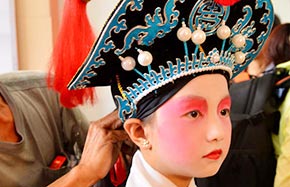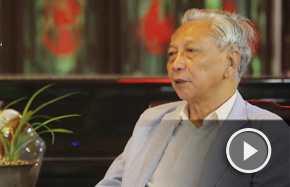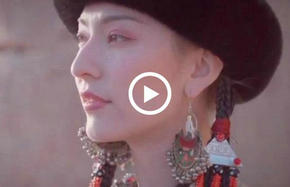The art of the sleuth
"I saw the situation, and realized the FBI was the group in the government that protected people's rights and protected them from racial intimidation," he says. "I thought it was something honorable and something I can do."
He applied to join the service at the age of 23 and was turned down for "having no experience".
After several years working at a Maryland agricultural magazine, where he received "good training on how to please people and be actual" as a reporter and salesman, he was finally accepted into the FBI at age 32.
He benefited from training in agent skills from veteran FBI men, learning tricks like which angle to stand when knocking on strangers' doors. In 2005 he created and led the FBI's Art Crime Team, and trained new agents to investigate art theft and art fraud.
Wittman also benefits from his Japanese and American background.
He says he grew up surrounded by Japanese and Chinese ceramics, and Japanese Ukiyo-e paints in the oriental antique shop his parents managed.
"I grew up buying and selling antiques," he says.
The Asian philosophy of patience is the key to successful undercover work.
"It's much like the Chinese way," he says. "In any type of investigation, it is better to just wait, relax and be harmonious, and let things develop over time."
Wittman retired in 2008. He says the biggest changes between then and now is the rise of the Chinese art market.
"It's fairly recently that China has become one of the top countries for art import and art sales, following the economic growth," he says, adding one phenomenon he observed from his career is that "criminals follow the financial market. When value goes up, the crimes go up".
He warned that there is a risk to art security and of art fraud in the country. He, his wife Donna and their children currently run a Philadelphia-based company on art recovery, collection management and security.
Wittman's favorite art to collect is Impressionist art, which was inspired by the Japanese Ukiyo-e paintings, along with Chinese scroll paintings.
"Chinese scroll paintings are very calming, good to look at and they're representative of what the painters have seen, including the calligraphy," he says.
"I collect only for taste, not for money," Wittman says, adding his personal art collection is not valuable.
Wittman says his collection has been influenced by the cases he has worked on, where he learned about specific types of art and fell in love with them.
"Education creates appreciation," the former agent says.
Related:
After reading former FBI agent Robert King Wittman's book about tracking down art thieves, screenwriter and critic Shi Hang says Wittman is a real-life Indiana Jones. More

















